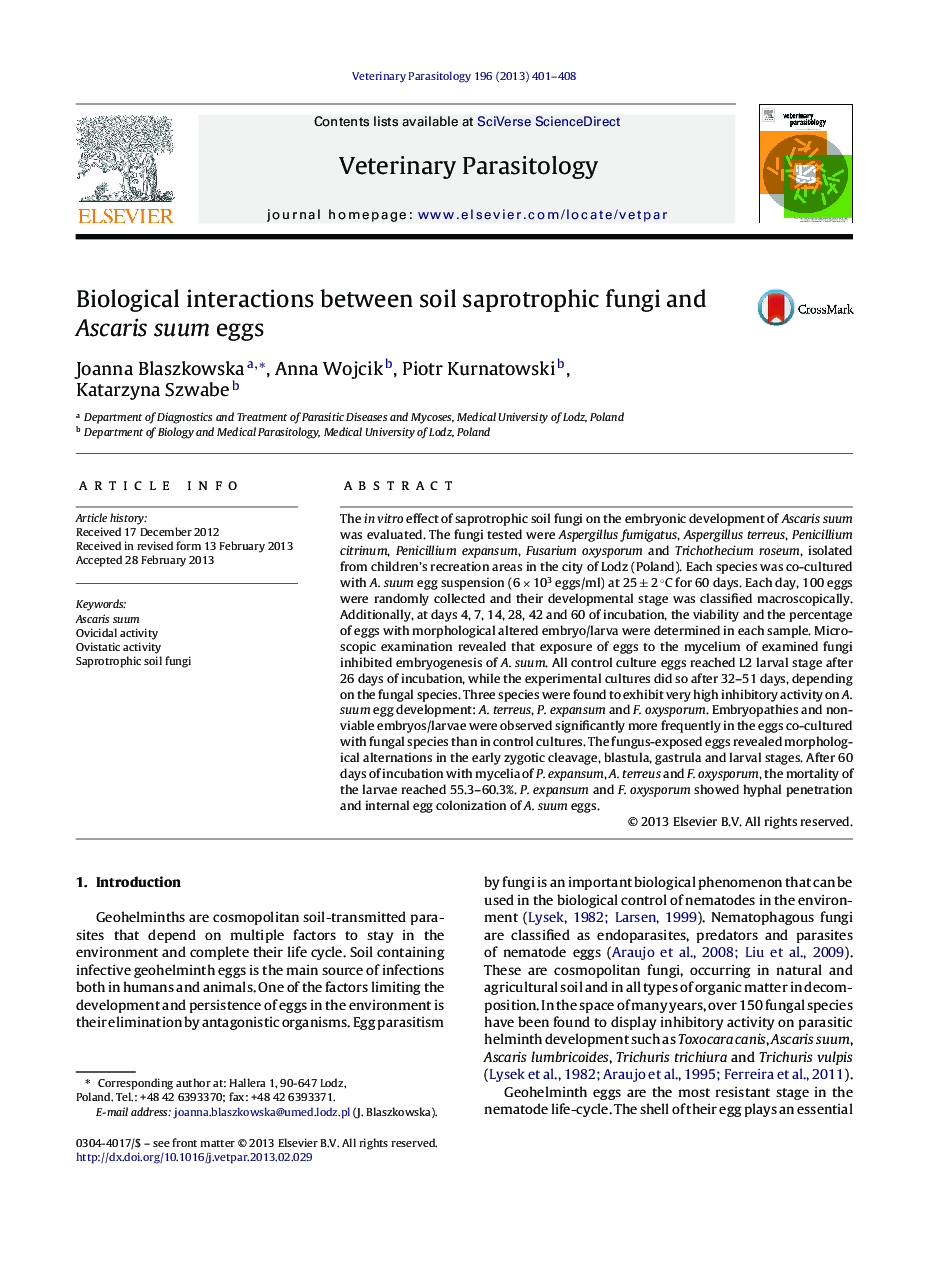| Article ID | Journal | Published Year | Pages | File Type |
|---|---|---|---|---|
| 5804182 | Veterinary Parasitology | 2013 | 8 Pages |
The in vitro effect of saprotrophic soil fungi on the embryonic development of Ascaris suum was evaluated. The fungi tested were Aspergillus fumigatus, Aspergillus terreus, Penicillium citrinum, Penicillium expansum, Fusarium oxysporum and Trichothecium roseum, isolated from children's recreation areas in the city of Lodz (Poland). Each species was co-cultured with A. suum egg suspension (6 Ã 103 eggs/ml) at 25 ± 2 °C for 60 days. Each day, 100 eggs were randomly collected and their developmental stage was classified macroscopically. Additionally, at days 4, 7, 14, 28, 42 and 60 of incubation, the viability and the percentage of eggs with morphological altered embryo/larva were determined in each sample. Microscopic examination revealed that exposure of eggs to the mycelium of examined fungi inhibited embryogenesis of A. suum. All control culture eggs reached L2 larval stage after 26 days of incubation, while the experimental cultures did so after 32-51 days, depending on the fungal species. Three species were found to exhibit very high inhibitory activity on A. suum egg development: A. terreus, P. expansum and F. oxysporum. Embryopathies and non-viable embryos/larvae were observed significantly more frequently in the eggs co-cultured with fungal species than in control cultures. The fungus-exposed eggs revealed morphological alternations in the early zygotic cleavage, blastula, gastrula and larval stages. After 60 days of incubation with mycelia of P. expansum, A. terreus and F. oxysporum, the mortality of the larvae reached 55.3-60.3%. P. expansum and F. oxysporum showed hyphal penetration and internal egg colonization of A. suum eggs.
